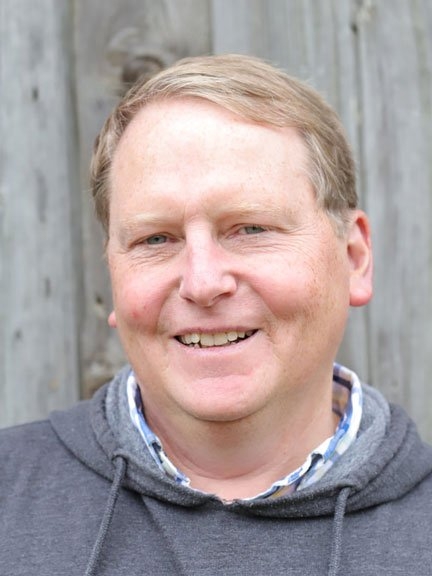Bill Vitek
He/Him
Scholar-in-Residence, Environmental Affairs

- Office
- 23 Adirondack 201
- Tel
- (802) 443-5586
- wvitek@middlebury.edu
- Office Hours
- By appointment
Scholar-in-Residence Bill Vitek directs the New Perennials project and is an affiliate humanist chaplain at the Charles P. Scott Center for Spiritual and Religious Life. Before arriving at Middlebury in 2018, Bill taught philosophy for 32 years at Clarkson University, always with the objective of helping students experience the philosophical imagination as an important and useful tool for doing work in the world. Much of his own efforts have engaged ecological issues, including collaborations with Wes Jackson and The Land Institute for over three decades. Vitek and Jackson co-edited Rooted in the Land: Essays on Community and Place (1996) and The Virtues of Ignorance: Complexity, Sustainability, and the Limits of Knowledge (2008). A semi-professional jazz pianist, Vitek founded and performs throughout Vermont in The Jazz Collective.
Courses Taught
ENVS 0332
The Perennial Turn
Course Description
The Perennial Turn
The work of repairing Earth—response-ably attending to life-nourishing human and more-than-human interrelationships—starts at scales of self and community. Power dynamics, thoughtways, humans, and planet Earth changed dramatically when our ancestors began annually disrupting soil ecosystems and storing surplus food. We explore and engage in notions of perennial thinking and action through readings, direct experience, and work with local partners at the forefront of the perennial turn. Combining ancient and contemporary knowledges in sciences, philosophies, spiritualities, and more, we investigate thinking more like a prairie than a plow. How might developing a perennial orientation toward the world help us regrow deep roots and craft ways that align with current understandings of Universe, Earth, and life? 3 hrs. sem.
Terms Taught
Requirements
ENVS 0500
Current
Upcoming
Independent Study
Course Description
Independent Study
In this course, students (non-seniors) carry out an independent research or creative project on a topic pertinent to the relationship between humans and the environment. The project, carried out under the supervision of a faculty member with related expertise who is appointed in or affiliated with the Environmental Studies Program, must involve a significant amount of independent research and analysis. The expectations and any associated final products will be defined in consultation with the faculty advisor. Students may enroll in ENVS 0500 no more than twice for a given project. (Approval only)
Terms Taught
ENVS 1046
Walking Body, Walking Mind
Course Description
Walking Body, Walking Mind: Philosophy on the Hoof
Walking upright with a bipedal gait emerged in early humans between 1.9 and 3.7 million years ago. For the last few millennia and across many cultures and traditions walking has accompanied and inspired human endeavors of the mind and spirit. In this course we will engage the literatures of walking in the humanities and natural/social sciences by reading and discussing excerpts from classic “walking” texts in philosophy, religion, and eco-spirituality, while also experiencing different modes of walking, including its social justice potential in resistance and reconciliation. Suitable footwear and clothing for walking/hiking in January in Vermont required. This course counts as a humanities cognate for Environmental Studies majors.
Terms Taught
Requirements
INDE 0800
Upcoming
Ind Schol Sr Work/Proj/Thesis
Course Description
Terms Taught
